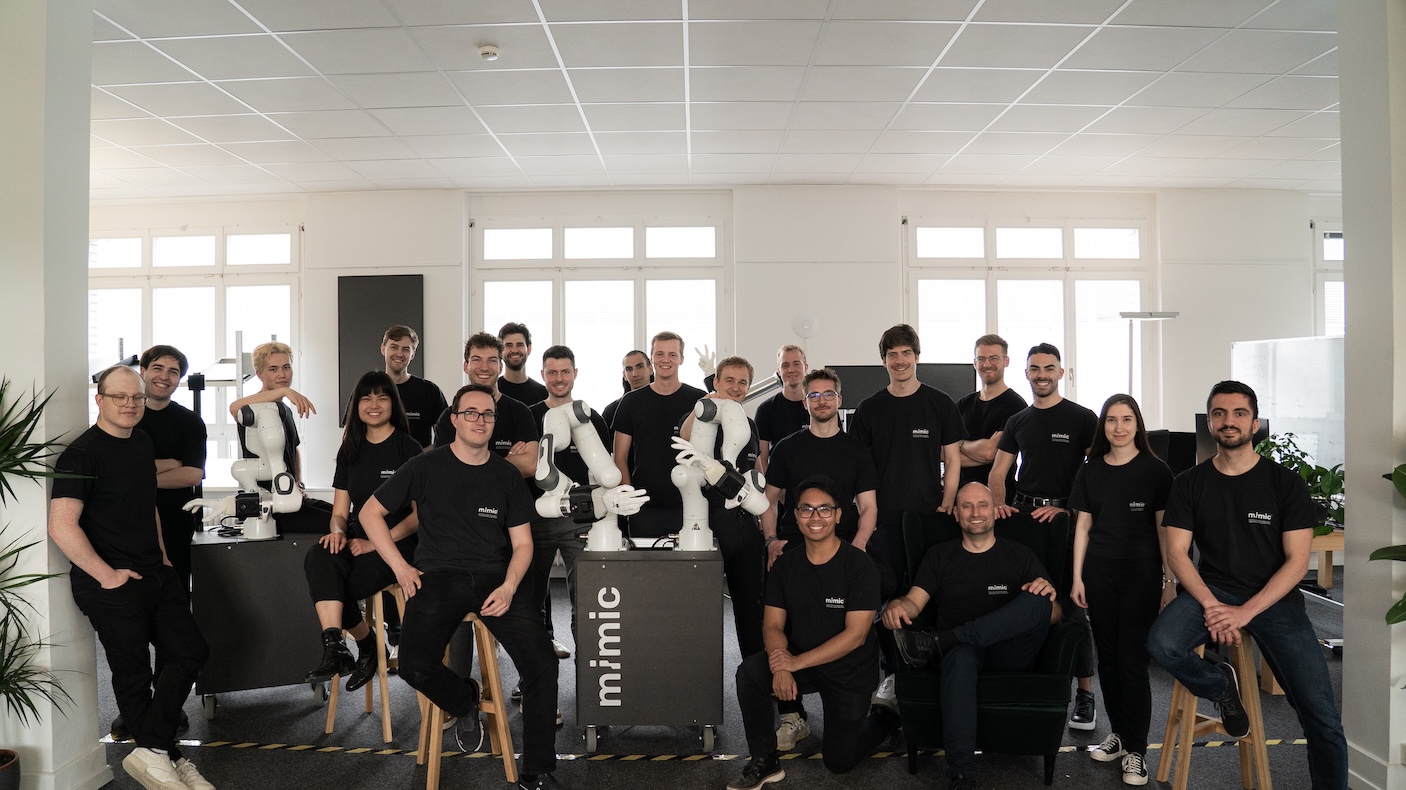Industrial Tech: An Investment Category Reaches Critical Mass
The Speedinvest Industrial Tech team has partnered with Dealroom to publish an in-depth report, sponsored by Knapp AG, about the status quo of the European Industrial Tech ecosystem. Key takeaways and the full report below.
Industrial Tech: A Sleeping Giant Awakes
Industrial settings and the global industrial sector in general are currently undergoing a fundamental shift and change, driven by new kinds of technological megatrends and the intersection of multiple disciplines and domains. The convergence of OT and IT is just one example: while operating technology and the industrial shop floor was not or only lightly touched by information technology in the past, it is expected that the convergence will strongly intensify, leading to the permeation of connectivity and transparency throughout the value chain and the ability to drive automation through machine learning and robotics.
Other transformative trends include the decentralization of production and customization, driven mostly by the advent of additive manufacturing technologies; the consumerization of manufacturing, resulting in more convenience and ease of engineering tools and other solutions; or the decarbonization of industrial processes, such as advanced waste management, circular-economy approaches and breakthrough innovation across different technological disciplines and industrial sectors.
All of this results in massive opportunities for startups to either be transformative enablers of established industrial companies or to disrupt whole value chains. This is one of our core hypotheses behind the Speedinvest Industrial Tech focus fund, where we see the European ecosystem to benefit particularly from world-class universities and research institutions as well as the global leadership in core industrial markets.
About four months ago we teamed up with Dealroom to publish a report, sponsored by Knapp AG, about the status quo of the European Industrial Tech ecosystem and to reflect on the time since our fund’s inception. Below we highlighted the main takeaways while the full report can be downloaded here.
A Massive Sector Invests Heavily in IT-related Technologies
Traditional industries — i.e. manufacturing, mining, construction or utilities — are the backbone of our society and enable the standard of living of modern-day civilization. Electricity and power generation, wider mobility, IT and healthcare are just a few examples that, without the right underlying materials and equipment, would not be possible. The sector as a whole accounts for roughly 30% of the global economy or about €20 trillion in value add.
Its low level of digitalization and the transformative trends (as outlined above) represent an economic opportunity of about €300bn per year in Europe alone. This factors in logistics tech due to its importance for the industrial sector and is based on the assumption by PwC that about 3.3% of turnover is invested in Industry 4.0 solutions. The percentage varies a bit depending on which study you look at, but overall Morgan Stanley estimates that manufacturing will be responsible for 40% of global investment in IT and related technologies in the next decade.

VC Investment in the Sector on a Rapid Growth Trajectory
Obviously, such an opportunity didn’t go unnoticed by the startup and VC ecosystem. European Industrial Tech investment passed €1B for the first time in 2019, and, having raised €0.9B in the first three quarters, is on track for another record year in 2020. Investment in the sector has grown by 8.8x between 2014 and 2020, more than twice as fast as overall European VC investment in the same period, while the two largest Industrial Tech ecosystems are Germany ($962M invested since 2015) and France ($857M invested since 2015).

This growth was mostly fueled by a rise in late-stage funding in Industrial Tech, hinting to a more mature state of the ecosystem. Additionally, the overall deal count has been growing, which means that the pipeline for late-stage rounds is growing. However, while the growth has been rapid, Industrial Tech funding makes up just 3.0% of European VC investment. With Industry contributing 25% of the European economy (and 30% of the global economy) there is still significant headroom to grow as an investment category.
Logistics as One of the Most Promising Areas
In the report, we take a dedicated look at logistics tech. Although it doesn’t involve core industrial processes, logistics has, in the last couple of decades, grown into a core function of every industrial company and each individual plant. It is also an area with enormous potential to integrate digital technologies which puts it at the forefront of industry 4.0 initiatives. The European logistics sector has a massive size (with a turnover of over €1.1tn per year) and is highly fragmented, which gives new entrants and startups additional advantages (the top 10 logistics companies only account for 11% of the overall market). All of this led to European logistics companies having raised €1.17bn in funding since 2015, nearly a third of all industrial tech funding and the highest funded subcategory (see chart below).

As a complex industry and innovation growth area, startups are addressing multiple distinct segments of logistics: supply chain management (incl. TMS, risk and data management), tracking and real-time visibility, freight forwarders and shipping automation, ecommerce logistics, procurement, and fleet management. The highest funded subcategories are freight forwarding (€278m since 2015), warehouse automation (€216m) and ecommerce logistics (€199m), detailed in the chart below.

For us at Speedinvest, logistics tech has proven to be very promising with previous investments in Schüttflix among others, and will continue to be one of the core areas to look at. We are also proud to have Knapp as a globally leading provider of warehouse automation solutions as a cornerstone investor in our fund and are of course grateful for their support and input to the report.
Overall, it is great to see the massive growth of the industrial tech ecosystem in Europe, with almost a nine-fold increase in investment over the last six years. Also the increase in number and investment in growth equity rounds shows that the ecosystem is in a more mature state nowadays. We are convinced that the confluence of multiple transformative trends and the size of the sector provide the perfect timing and a massive opportunity for startups.
We can’t wait to see what lies ahead of us but would be eager to get in touch with the next generation of industrial tech founders.
Learn more about the Speedinvest Industrial Tech team and sign up for our newsletters to get our exclusive content delivered straight to your inbox.












.svg)
